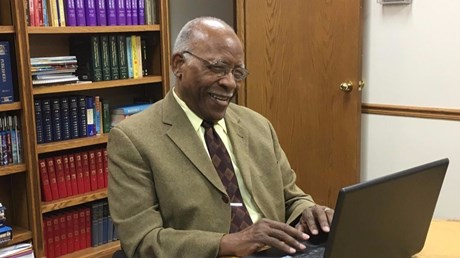The classic Pixar franchise returns with a refreshing look at what it means to pass the torch onward.

Cars 3 opens in the same way as the original Cars, with Lightning McQueen, the central character, sitting in his trailer before a big race. As usual, McQueen is prepping for the race with a little motivational self-talk: “Focus. Speed. I am speed,” he says to himself. “One winner, 42 losers. I eat losers for breakfast.” After this line, however, the scene goes in a different direction; McQueen follows up with, “Wait. Did I really used to say that?” It’s as if he still can’t believe that he used to be such a jerk.
It’s a clear signal from the start that, all these years later, McQueen remains a nice car. The lessons he learned in the original film are still with him. Free of ego, he has the same rundown sponsors and lives in the same rundown town (the economic boom viewers saw in Radiator Springs at the end of Cars having apparently been a passing one), yet he is at the top of his industry—a racing superstar.
The problem that McQueen has in Cars 3 has less to do with the out-of-control ego of the original and more to do with something far more intractable: He is getting old. A good percentage of his demographic can relate, as many of the parents who took their kids to see Cars when it was first released in 2006 are now approaching middle-age right along with McQueen himself.
Getting old isn’t fun, whether you are a human being or an animated racecar, and it’s not long before McQueen’s legacy is threatened as he is outrun by the next generation of cars. Thanks to enhanced technology and data-driven training, these cars are fast, and McQueen doesn’t have a chance against them. In short, then, Cars 3 turns out to be a story about millennials and …
Continue reading…







 It’s essential to verify in writing how lengthy you can demo out any support you buy using a correct to reunite it, what fees, if any, you are going to need certainly to pay in the event you reunite it, and whether the check period is likely to be extended in the event the dispenser indicates attempting to make changes so the aid will match you better. For one product, we discovered that costs among neighborhood dispensers ranged from $1,999 to $2,999. And that is for the same design! For another one, costs ranged from $1,455 to $3,900. This demonstrably shows the range of help costs that may be found.
It’s essential to verify in writing how lengthy you can demo out any support you buy using a correct to reunite it, what fees, if any, you are going to need certainly to pay in the event you reunite it, and whether the check period is likely to be extended in the event the dispenser indicates attempting to make changes so the aid will match you better. For one product, we discovered that costs among neighborhood dispensers ranged from $1,999 to $2,999. And that is for the same design! For another one, costs ranged from $1,455 to $3,900. This demonstrably shows the range of help costs that may be found.
